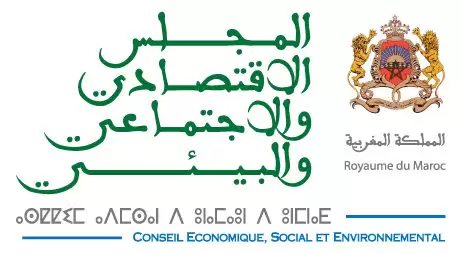
Amidst mounting apprehensions regarding the potential impact of digital technology on our country, the Economic, Social and Environmental Council (CESE) issued an own-initiative opinion entitled “Towards a responsible and inclusive digital transformation”.
Synthesis
Amidst mounting apprehensions regarding the potential impact of digital technology on our country, the Economic, Social and Environmental Council (CESE) issued an own-initiative opinion entitled “Towards a responsible and inclusive digital transformation”.
The digital revolution is a genuine lever for transformation and acceleration, which enhances citizen-government interactions, boosts economic productivity and competitiveness, and reduces social and spatial disparities.
Having fully recognized this challenge, Morocco has introduced initiatives such as “Maroc Dig-ital 2020” to accelerate its digital transformation. Several specialized bodies have been estab-lished as part of this endeavor, including the Digital Development Agency and the National Commission for Data Protection (CNDP).
Yet, the various initiatives implemented to date have not met the essential requirements for a successful digital transformation nor adequately bridged Covid-19-compounded digital dispar-ities.
Several factors could account for this situation, including:
1. Several sectors (such as administration, health, education, and industry) have experi-enced significant delays in implementing previous digital transformation policies.
2. An insufficient geographic reach for broadband and ultra-high-speed Internet access.
3. A fragmented and, at times, insufficient legislative and regulatory framework, particularly regarding remote work.
4. Insufficient number of local technology market players.
5. The country’s output of digital, cultural and educational content is low.
6. The absence of a national AI roadmap.
Accordingly, The Council recommends developing a three-year plan with a clear vision for inclusive and responsible digital transformation that will ensure the following:
1. Provide widespread access to high-speed and ultra-high-speed Internet for the entire population, while maintaining adequate service quality.
2. Streamline all administrative processes through digitization.
Following is a set of key measures put forth by the Council:
1. Prioritize digital solutions as a default implementation tool of public laws, regulations, and services, while fostering the development of new high-impact applications and systems for users (citizens and businesses).
2. Develop a comprehensive and specific regulatory framework for digitalization, particularly in terms of remote work and data security.
3. Improve cybersecurity and digital sovereignty to foster responsible digital transformation, through improved infrastructure resilience, increased digital trust, personal data protection, and widespread use of electronic signatures.
4. In collaboration with the public and private sectors, establish national and regional sov-ereign data centers to store critical data (data and applications) of the Moroccan State and Moroccan business corporations.
5. Establish a Moroccan digital “ecosystem” with as a policy tool public procurement and innovative financing mechanisms for digitalization actors, while providing incentives to companies investing in digitalization, such as reimbursement for overpayments and state financing guarantees.
6. Ensure rapid implementation of national-scale interoperable mobile payments to reduce cash transactions and address the financial inclusion backlog.
7. Build an ecosystem for start-ups to thrive and cultivate a real digital industry by involv-ing the academic, economic, and industrial systems in digital transformation research and development.
8. Make artificial intelligence (AI) a national top priority area in the process for digital transformation as a cost-effective solution to reduce production costs and meet the diverse needs of citizens.
